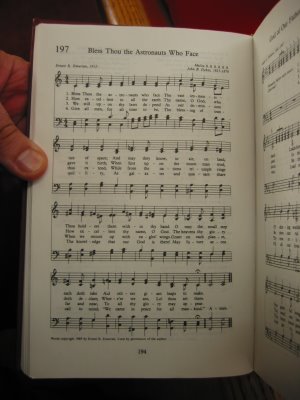(Crossposted from the American Constitution Society :: Columbia Law School)
Barring an unexpected Lame Duck attempt to amend the U.S. Constitution, Democratic control of Congress will probably result in a temporary moratorium on proposed amendments to the Constitution that would ban gay marriage or ban burning Old Glory.
Of course, the G.O.P. does not have a monopoly on converting a Congressional majority into failed attempts to amend the Constitution. During the next 2 years of their pending majority, if the Democrats need to find examples of entertaining failed attempts to amend the U.S. Constitution, history provides some real doozies.
In this post, we'll explore three prominent categories of failed Constitution amendments.
 Zombie Amendments:
Zombie Amendments:
Approved, Not Ratified, No Expiration DeadlineStarting in the early 20
th century, Congress began placing deadlines on the amendments it sent to the states for ratification. Typically, the states were given seven years to ratify an amendment. After the passage of the deadline, the proposed amendment would expire and Congress would need to start the process all over again to raise the issue. (In the past 50 years, two amendments expired after Congressional approval: the 1972
Equal Rights Amendment & the 1978
D.C. Voting Rights Amendment)
However, absent explicit sunset provisions, approved yet unratified amendments do not expire.
1 Instead, they linger eternally, pending ratification. As shown with the
27th Amendment, an amendment which floated around for 200 years before finally being ratified in the 1990's, each of these amendments has the potential of becoming law.
 Congressional Apportionment Amendment:
Congressional Apportionment Amendment: This
proposed amendment was the first of the original twelve amendments proposed to Congress (The original 2
nd Amendment eventually became the
27th Amendment mentioned above). If passed, the amendment would have restricted the original size of the House of Representatives to 100 representatives, with later enlargements to be determined by Congress. From 1789 to 1792, 11 states ratified this amendment, leaving it two states short of ratification.
Titles of Nobility Amendment: Proposed in 1810,
this amendment would strip U.S. citizenship from any citizen accepting, claiming, retaining, or receiving a foreign title of nobility without the consent of Congress.
Believed by some [See
here and
here. For a rebuttal, see
here.
(Apply salt liberally to the arguments on these web pages.)] to have been ratified and then supressed by a conspiracy of lawyers (who – so the theory goes – would lose their citizenship via their
esquire title), this amendment was
approved by 12 states, just one shy of full ratification. Since, at the time, it came within one house of the South Carolina legislature of being ratified, some 19
th century printings of the Constitution erroneously include it as the 13
th Amendment.
2Pro-Slavery Amendment: A last-ditch effort to avoid a civil war,
this amendment – approved by the House and Senate on Februrary 28 & March 2, 1861, respectively – stated simply:
No amendment shall be made to the Constitution which will authorize or give to Congress the power to abolish or interfere, within any State, with the domestic institutions thereof, including that of persons held to labor or service by the laws of said State.
Apart from its subject matter, the language of this amendment raises an important issue in U.S. Constitutional theory: Can a Constitutional amendment prohibit a later amendment
through an entrenched clause?
Although this amendment was ultimately
ratified by Ohio and Maryland, neither legislature ratified it before the start of Civil War hostilities with the
Battle of Fort Sumter on April 12, 1861.
 Child Labor Amendment:
Child Labor Amendment: Proposed in 1924 and ratified by 28 states,
this still-pending amendment requires the approval of 10 more states in order to restrict to the federal government all power to regulate labor of persons under 18 years old.
This amendment is a direct reaction to the
Child Labor Tax Case,
3 which found Congress had overstepped the boundaries of the 10
th Amendment with the scope of the taxes it placed on factories employing child labor.
Let's Remake America Amendments:Ambitious Attempts to Change this CountryHad they been ratified, these proposed amendments would dramatically change the way our country works.
- 21st Amendment Redux: Occasionally, lawmakers propose repealing previous Amendments. In 2005, now House majority leader Steny Hoyer proposed repealing the 22nd Amendment, which limits the President to two terms. In 2004, Senator Zell Miller proposed the repeal of the 17th Amendment, which allows for democratic election of the Senate.
- International Impediments: The Ludlow Amendment, proposed in 1938, would require a national referendum to declare war except in cases of direct attack. Prior to SCOTUS's holding in Reid v. Covert,4 which held that the Constitution was supreme over any treaty, the Bricker Amendment proposed to limit the scope of the treaty power.
- First Amendment, Schmirst Amendment: Time and again, various people have decided that the Constitution lacks the appropriate shout-outs to the deity of their preference. From the 1860's through the 1950's, numerous proposals to exclaim our country's obedience to the Christian God were considered by Congress. In 2003, Frank Lucas (R-OK) introduced a house bill to preserve the Red-Scare-Era "under God" in the Pledge of Allegiance. In 2005, Representative Ernest Istook (also R-OK) proposed an amendment to explictly endorse school prayer.
No Way, José Amendments:That's Just Crazy TalkThese proposed amendments were going exactly nowhere, but that's why we like 'em.
- Focus on the, er... Family: On March 31, 2003, former Representative and all-around class act Mark Foley proposed an amendment to remove U.S. citizenship from the children of illegal immigrants. (Insert Mark Foley joke here.)
- Cross of Gold, Revisited: Representative Ron Paul (who, awesomely, supports the Gold Standard) proposed the following amendment on January 26, 2005:
H. J. RES. 14 — Proposing an amendment to the Constitution of the United States relative to abolishing personal income, estate, and gift taxes and prohibiting the United States Government from engaging in business in competition with its citizens.
Yeah... Good luck with that one, Mr. Paul.
- A Big Day for Jesse Jackson, Jr.: Never one to bite off more than he could chew, Representative Jesse Jackson, Jr. introduced a large number of amendments on March 2, 2005. Combined, these amendments would grant:
- The right to U.S. citizens to health care of equal high quality.
- The right to U.S. citizens to a public education of equal high quality.
- The right to vote.
- The right to a clean, safe, and sustainable environment.
- The right to decent, safe, sanitary, and affordable housing.
- Equality of rights and reproductive rights (bolstering Roe v. Wade).
- The right to full employment and balanced growth.
- Taxing the people of the United States progressively.
1 Coleman v. Miller, 307 U.S. 433, 454 (1939) (Finding that all amendments are considered pending before the states indefinitely unless Congress establishes a deadline within which the states must act.)
2 In Campion v. Towns, 2005 WL 2160115 at *1 (D. Ariz. 2005), a tax protester produced an 19th century archival copy of the Constitution incorrectly listing the Titles of Nobility Amendment as the 13th Amendment. Needless to say, the argument based on the existence of this document did not go very far with the Court.
3 Bailey v. Drexel Furniture Co., 259 U.S. 20 (1922)
4 354 U.S. 1 (1957)



















